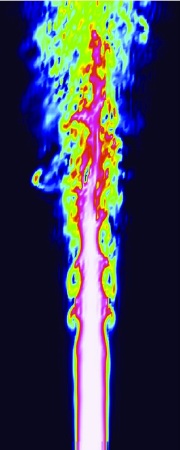A team of researchers led by Professor Peyman Givi from the University of Pittsburgh (Pitt) is involved in the development of quantum-computing algorithms to simulate turbulent combustion in a better way for aerospace applications.

Givi had received a five-year grant from the U.S. Air Force for this work in April 2012. The research team comprises scientists from Pitt's Center for Simulation and Modeling and Kenneth P. Dietrich School of Arts and Sciences.
Givi's classical turbulence equations are nondeterministic in nature. Hence, the team believed that there is a possibility to solve these equations using quantum computers in order to accelerate the simulation of turbulent combustion. Givi informed that the team has devised equations to accurately simulate turbulent combustion and has successfully solved these equations using present classical computers. The team will use this grant to formulate these equations for finding a solution for them using quantum computing.
Since quantum computers are not yet realized, Jeremy Levy and Andrew Daley, members of the research team, will seek various concepts for developing quantum computers, thus allowing the scientists to produce hardware that functions like a quantum device. Although Einstein also warned researchers to stay away from the unsolved turbulence field, Givi’s team believed that the turbulence problem can be solved using quantum computing.
According to Givi, if the team’s research becomes successful, a process that takes weeks or months can be completed within minutes, which is truly a quantum leap.